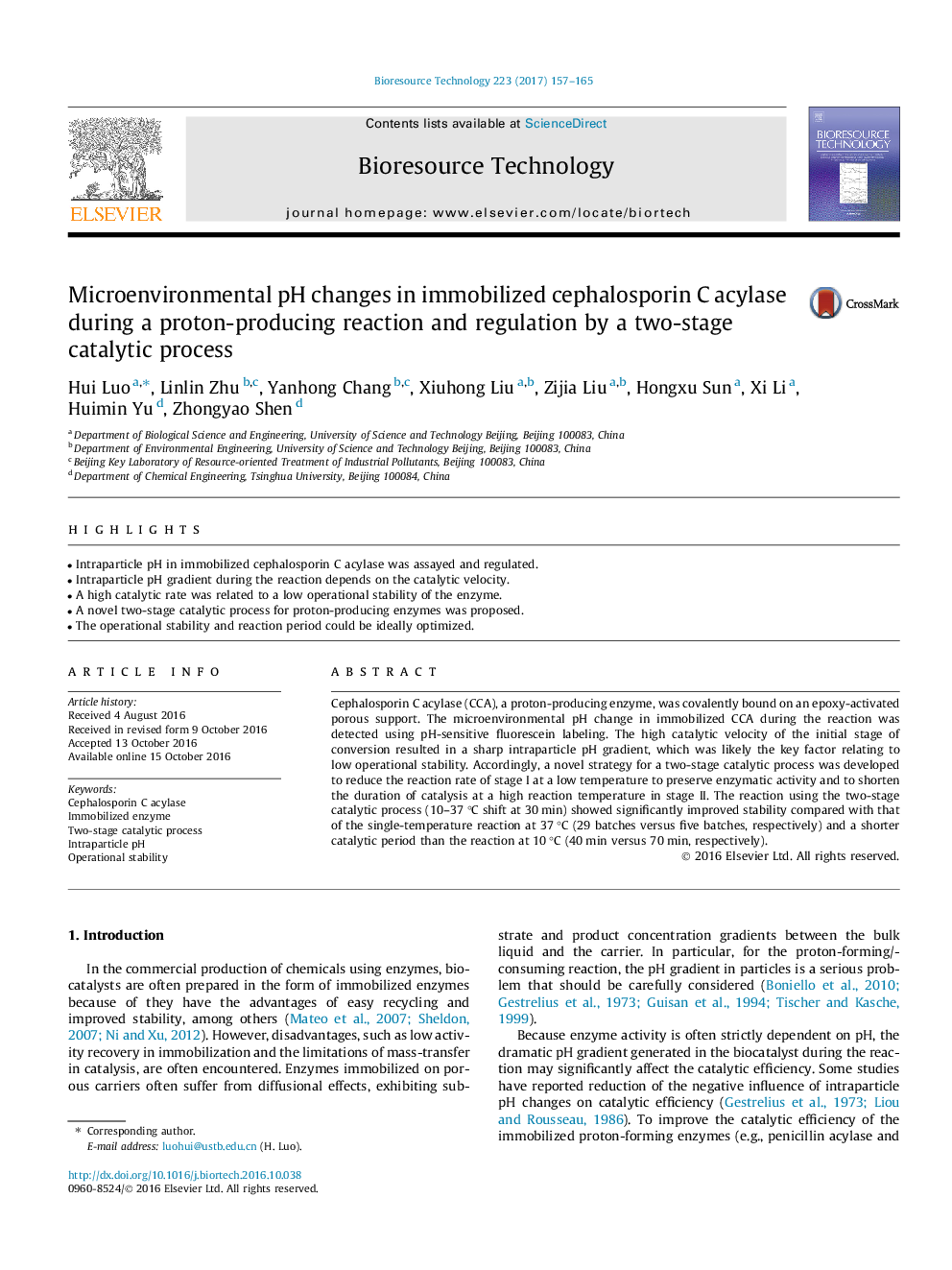| Article ID | Journal | Published Year | Pages | File Type |
|---|---|---|---|---|
| 4997794 | Bioresource Technology | 2017 | 9 Pages |
Abstract
Cephalosporin C acylase (CCA), a proton-producing enzyme, was covalently bound on an epoxy-activated porous support. The microenvironmental pH change in immobilized CCA during the reaction was detected using pH-sensitive fluorescein labeling. The high catalytic velocity of the initial stage of conversion resulted in a sharp intraparticle pH gradient, which was likely the key factor relating to low operational stability. Accordingly, a novel strategy for a two-stage catalytic process was developed to reduce the reaction rate of stage I at a low temperature to preserve enzymatic activity and to shorten the duration of catalysis at a high reaction temperature in stage II. The reaction using the two-stage catalytic process (10-37 °C shift at 30 min) showed significantly improved stability compared with that of the single-temperature reaction at 37 °C (29 batches versus five batches, respectively) and a shorter catalytic period than the reaction at 10 °C (40 min versus 70 min, respectively).
Related Topics
Physical Sciences and Engineering
Chemical Engineering
Process Chemistry and Technology
Authors
Hui Luo, Linlin Zhu, Yanhong Chang, Xiuhong Liu, Zijia Liu, Hongxu Sun, Xi Li, Huimin Yu, Zhongyao Shen,
